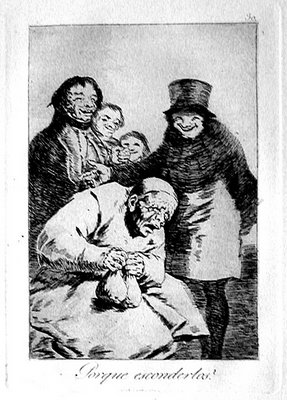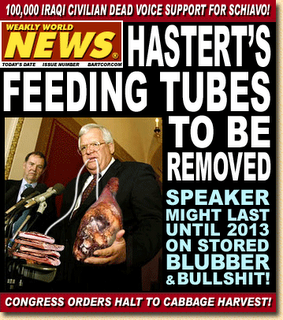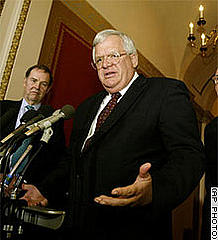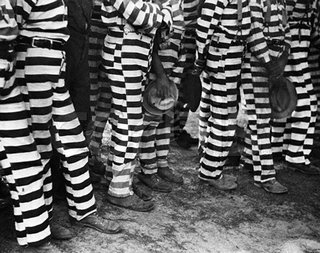Starving the Brain to Put on Extra Fat....

Alternet.org has an excerpt from Tamara Draut's new book, Strapped, on the difficulties young adults have in getting situated in the economy, specifically, on college education and the debt it has spawned.
The article does well enough at describing the problem, but seems to place the blame on the federal government's failure to keep grants and low-cost loans matched with demand.
More emphasis should be placed on the reasons why tuition--even at land-grant colleges and universities--through the `80s and `90s rose much more quickly than the rate of inflation and has continued to rise at such high rates.
This problem with public-school tuition began at roughly the same time as major tax cuts for the wealthy and for corporations were implemented at the federal level. Since those tax cuts did not (and will not) make up for the tax revenues lost, the gradual inclination of Congress was to keep funding for education from keeping pace with the actual need. That created part one of the problem.
The second part was that state tax returns, in large part, depend upon the federal return as their basis. When corporations and wealthy (who depend upon corporate investment for their wealth) came to pay state taxes, those taxes were reduced by the same extent as they had been on their federal returns. The end result? Fewer dollars available at the state and local levels.
In the `60s, the share of total federal revenues paid by corporations was about 34%. By the middle `80s, that share was about 24%. By the early `90s, that share was down to roughly 16%. In 2003, 8%. Estimates for the most recent tax years suggest that percentage may go even lower (and if the amount of tax rebates to and subsidies of mature corporations continue, the tax flow may actually go negative--net tax funds flowing out to corporations). It's not beyond common sense to say that this successive drop in federal share is mimicked at the state level.
This tax avoidance scheme is generally defended by the corporate world as necessary to meet its prime requirement of providing the best return for its shareholders. But, they have also been very active in the political process to obtain those tax breaks. Lobbying costs and campaign contributions are at all-time highs.
Supply-side economics is the brainchild of Andrew Mellon--the Treasury Secretary of Harding, Coolidge and Hoover--who presided over the boom of the Roaring `20s and its bust, resulting in the Depression of the `30s, the same theory which Reagan's minions revived, creating huge deficits.
Overlaid onto that supply-side policy has been a deregulation and privatization scheme which has put even more government money into private pockets. There's no incentive to reduce costs (or the interest rates of) student loans by private lenders such as Sallie Mae when the government is underwriting those loans. So, tax cuts have reduced the education grant money available at all levels (compared to need), as well as disproportionately increasing the cost of tuition, and government-privatized loan schemes have provided private investors with a government-secured income stream.
Some may say, "why not? It's not the business of business to pay for people's educations."
Even Adam Smith would say, "yes, it is." The workforce, despite tendencies today in business to think otherwise, is part of the nation's infrastructure. Corporations probably depend upon infrastructure, including education, even more than individuals, and yet, this obsession with shareholder return has become extraordinarily shortsighted, perhaps by design. The most common excuse for outsourcing jobs today is that educated people cannot be found in sufficient quantity at reasonable cost in the U.S. today. While that, now, might be a smokescreen, it may not be in the future.
And, let's remember who the real beneficiaries of this supposed need for greater profit are: the very same people benefitting from reduced taxes on their investments and who can most afford an education for their offspring. While it's always difficult to get a handle on the exact figures for private wealth distribution from equity investment, the top 400 families in the country control 32-33% of the stock, the top 1%, about 50%, top 5%, about 60%, the top 10%, about 80% of the stock.
There are reasons for the increasingly lopsided distribution of wealth in this country, and the foremost one is the same one that's causing the education affordability problems for lots of younger people in this country--preferential tax policies for the super-rich and the corporations driving their wealth.
At precisely the time that we, as a nation, need better-educated people, particularly in the green energy fields (which will require chemists, physicists, mathematicians and well-equipped public university research labs), we're making it much harder for bright, qualified kids to get a university education, in order to increase the wealth of the very class in the country which can afford higher education.
As Molly Ivins has said, "why are only populists accused of class warfare?" It's a good question.
In 1966, Reagan won office as governor of California, promising smaller government, a balanced budget and lower taxes. Classic supply-side, trickle-down economics. His first step toward that end was to put the University of California system "on a paying basis." Before that time, any student who could win a place in the university system competitively could go to college.
When Reagan left office, California government was larger, government spending was larger, there were deficits instead of a balanced budget, and fewer and fewer poor, bright kids were in California schools of higher learning. Reagan's system was transplanted to the federal level twenty-five years ago and we've yet to correct his economic mistakes. In fact, under Bush, we've made them even worse.
If it turns out that oil is in decline, will we be any better off that the energy solutions must still be imported from places like India and China and Japan, or would we be better off growing our own? Do we need bigger financial waistlines for the wealthiest among us, or do we need better brains?










